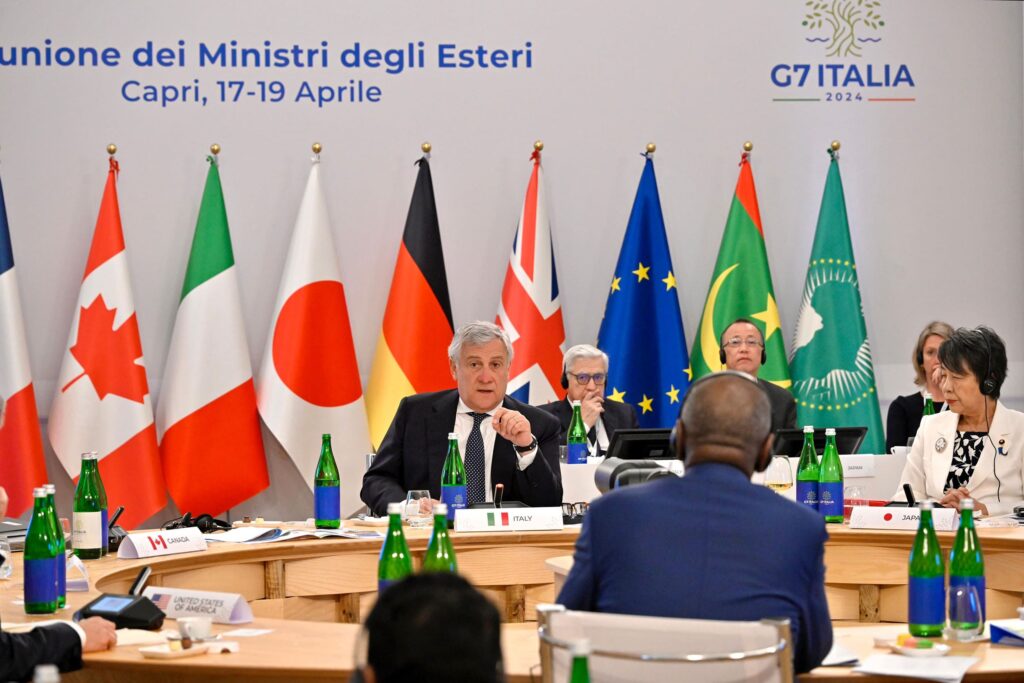Of the 33 paragraphs that make up the long final statement of the recent meeting of G7 Foreign Ministers held in Capri under the presidency of Minister Tajani, the paragraph traditionally dedicated to disarmament and non-proliferation he was only in twenty-third place. It is physiological that, in times of war, the arms race prevails over the propensity to promote international security through a mutual reduction of arsenals. In reality, the current war events have only exacerbated one reduction of the role of arms control which was already in place and which dates back to the beginning of this millennium following America’s withdrawal – in Trump’s time – from important disarmament agreements and the flagrant violations of international norms by Putin’s Russia.
The principle of a world free of nuclear weapons which the international community had unanimously approved in 2010 has been progressively watered down. Today, the objectives pursued are less ambitious and they aim above all to reduce the risk of a nuclear clash, especially in the Ukrainian context. This risk is real and Russia has not hesitated to draw the atomic sword through the alerting of its nuclear forces announced by Putin himself and the stationing of nuclear missiles in Belarus. Added to this are the bellicose nuclear threats almost daily by Kremlin dignitaries, former president Medvedev first and foremost. Everyone knows that, according to international norms, the threat is considered a form of use of nuclear weapons. NATO has so far abstained from similar measures and statements but there is no doubt that it would not be left idle if Moscow were to implement his threats.
On the eve of the Russian aggression of 2022 the five countries (N5) to which the Nuclear Non-Proliferation Treaty grants possession of nuclear weapons (China, Russian Federation France, United Kingdom, United States) still managed to agree on the concept that “a nuclear war cannot be won and must not be fought”. This was not a great result, if one considers that this expression had originally been agreed between Reagan and Gorbachev way back in 1986. It could however have become a starting point for further investigations. Since then, however, the 5 “big” nuclear companies have no longer reunited and have drastically reunited the opportunities for them to meet in other locations have been reduced. The expanded format of G20 which includes Russia and China and other countries of the so-called “Global South” has today become the main forum in which the majority of nuclear states participate. With difficulty it was possible to establish in this context a new concept general which is that of the “inadmissibility” of the use and threat of the use of nuclear weapons.
This principle has been partially implemented also from the G7 under the Italian presidency. Both in the “mini summit” of 24 February, organized by President Meloni on the occasion of the second anniversary of the start of the war in Ukraine, and in the G7 ministerial meeting in Capri, the concept of “inadmissibility” was in fact accepted, referring however only to the use and nuclear threat from Russia in the context of the war in Ukraine. We note, therefore, despite the convergence of principle achieved, that there is a I “distinguish” between the language of the G7 and that of the G20. It may emerge at the next G7 summits in Puglia and G20 in Rio de Janeiro and it will be necessary to resolve it if the dialogue is to be maintained and relaunched. Italian diplomacy, as G7 presidency, will find itself managing this delicate process.
Il disarmament non figure among the priority topics just announced by Prime Minister Meloni in view of the G7 summit, but the issue of nuclear weapons can hardly be avoided if, as now announced, at the session on artificial intelligence of the G7 will be attended by Pope Francis for which the nuclear disarmament is the subject of particular attention. He is one of them biggest supporters at an international level and will be able to seize the opportunity to give you an authoritative impulse, especially as i relationships between artificial intelligence and nuclear weapons are the subject of growing attention at an international level.
